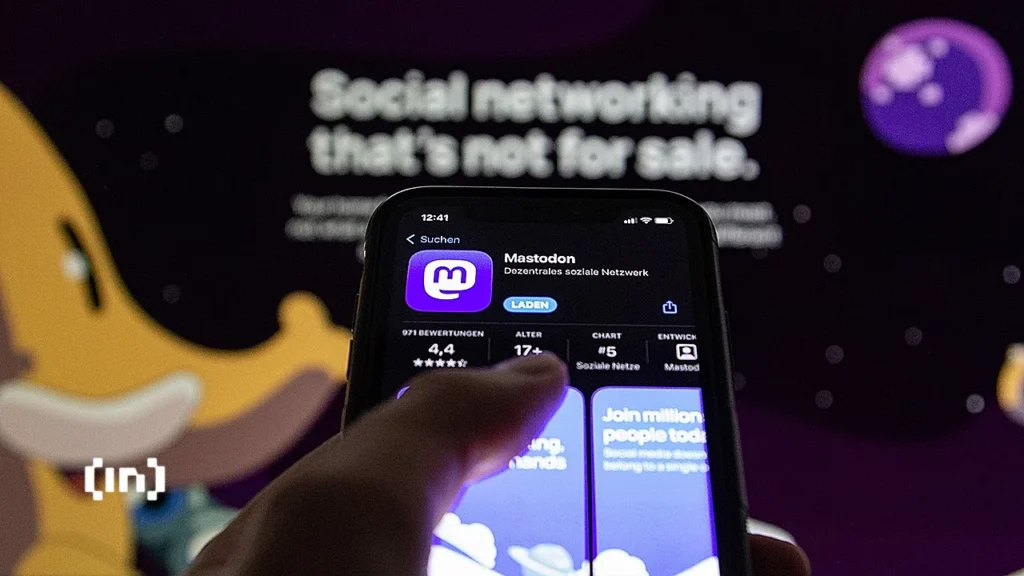Elon Musk’s acquisition of Twitter has seen users defect to rival platform Mastodon, which has a unique appeal for cryptocurrency advocates.
Musk completed his takeover of the social media platform last week, starting his tenure with sweeping lay-offs. Despite claims of bolstering freedom of speech, Musk promptly banned a prominent comedian for impersonating him in her profile.
In the wake of these actions, justifying concerns over the concentration of such power in one person, alternatives are burgeoning. While TikTok and Discord are a pair with significant momentum, one upstart should appeal to blockchain adherents specifically.
Enter Mastodon, the Decentralized Twitter
This platform is called Mastodon, established by German programmer Eugen Rochko in 2017. Ironically, Rochko was motivated to create the platform when libertarian entrepreneur Peter Thiel seemed poised to purchase Twitter himself.
Although it operates similarly to Twitter, with hashtags and “toots,” it has a unique underlying feature that sets it apart.
Instead of operating under a central authority, such as a company like rival platforms, Mastodon is effectively decentralized. While Rochko is based in Germany, Mastodon is also administered by other volunteers hosting thousands of servers around the world.
Users then share posts and links on their local servers, known as “instances,” which are interconnected across the global network.
This setup enables users with greater autonomy, such as choice of server, or the option to initiate their own instance. No single individual or organization can make sweeping decisions, or dictate how the system operates.
If extremism or toxic behavior emerges within a server, other instances can simply cut ties, effectively isolating the negative influence.
Next step, Blockchain Integration?
Several of these attributes should sound familiar to those who own or have read about cryptocurrencies and blockchain technology. One of the hallmark features of blockchain networks is their decentralized infrastructure, similarly for the purpose of precluding concentrated dominance.
One commentator on Twitter highlighted the parallels between Mastodon’s growing adoption and the appeal of Bitcoin. “I see a lot of comments along the lines of ‘I opened a Mastodon account just in case Twitter goes to crap under Musk management,’” Yannick said. “That’s exactly what Bitcoin is – an insurance policy against centrally-controlled currencies, in case they go to crap.”
While this could make Mastodon the social networking platform of choice for crypto adherents, it still lacks the encryption features that enable the secure transfer of value underlying cryptocurrencies.
However, if more blockchain enthusiasts end up migrating to the platform, it may lead to calls for the integration of the innovative technology.
Disclaimer
All the information contained on our website is published in good faith and for general information purposes only. Any action the reader takes upon the information found on our website is strictly at their own risk.


